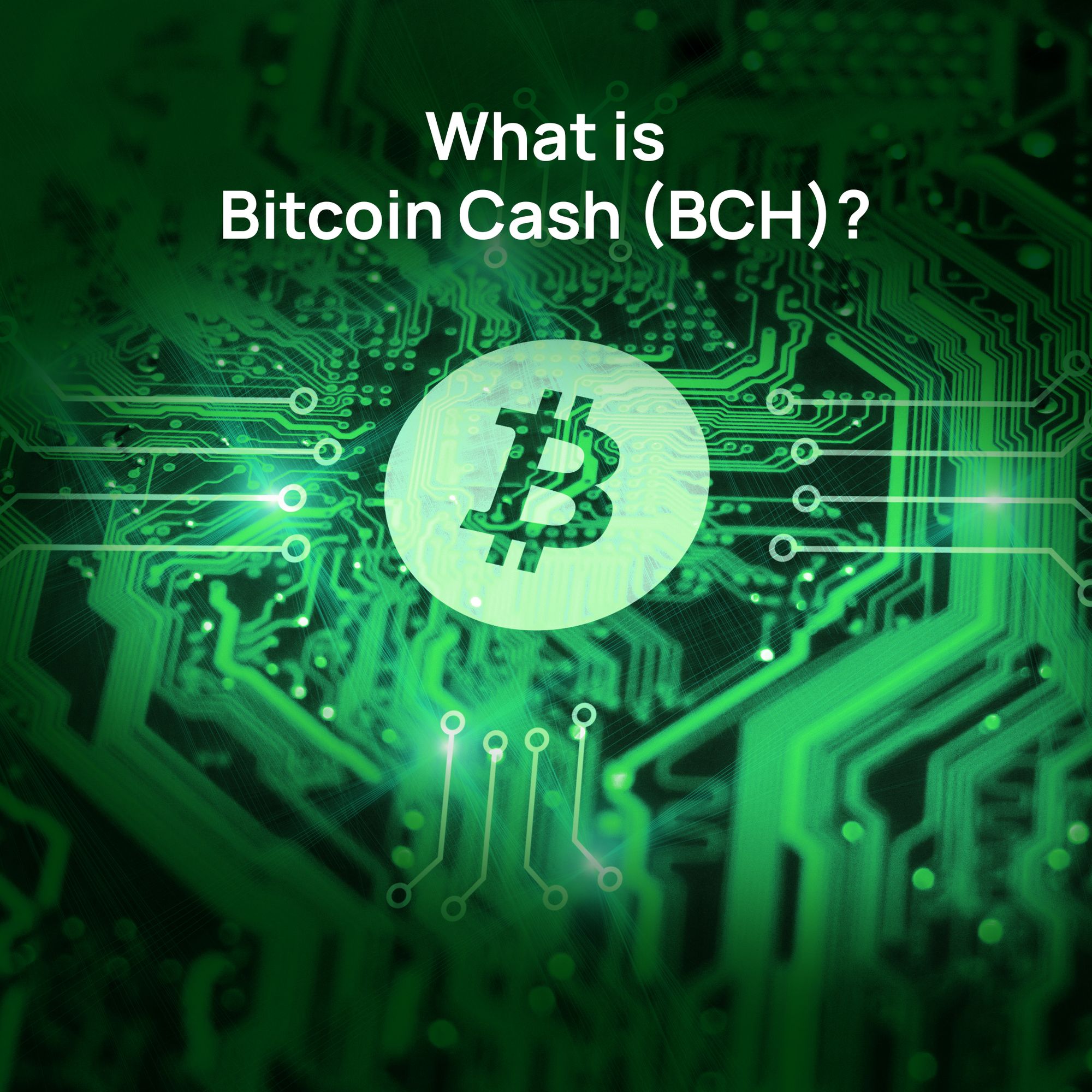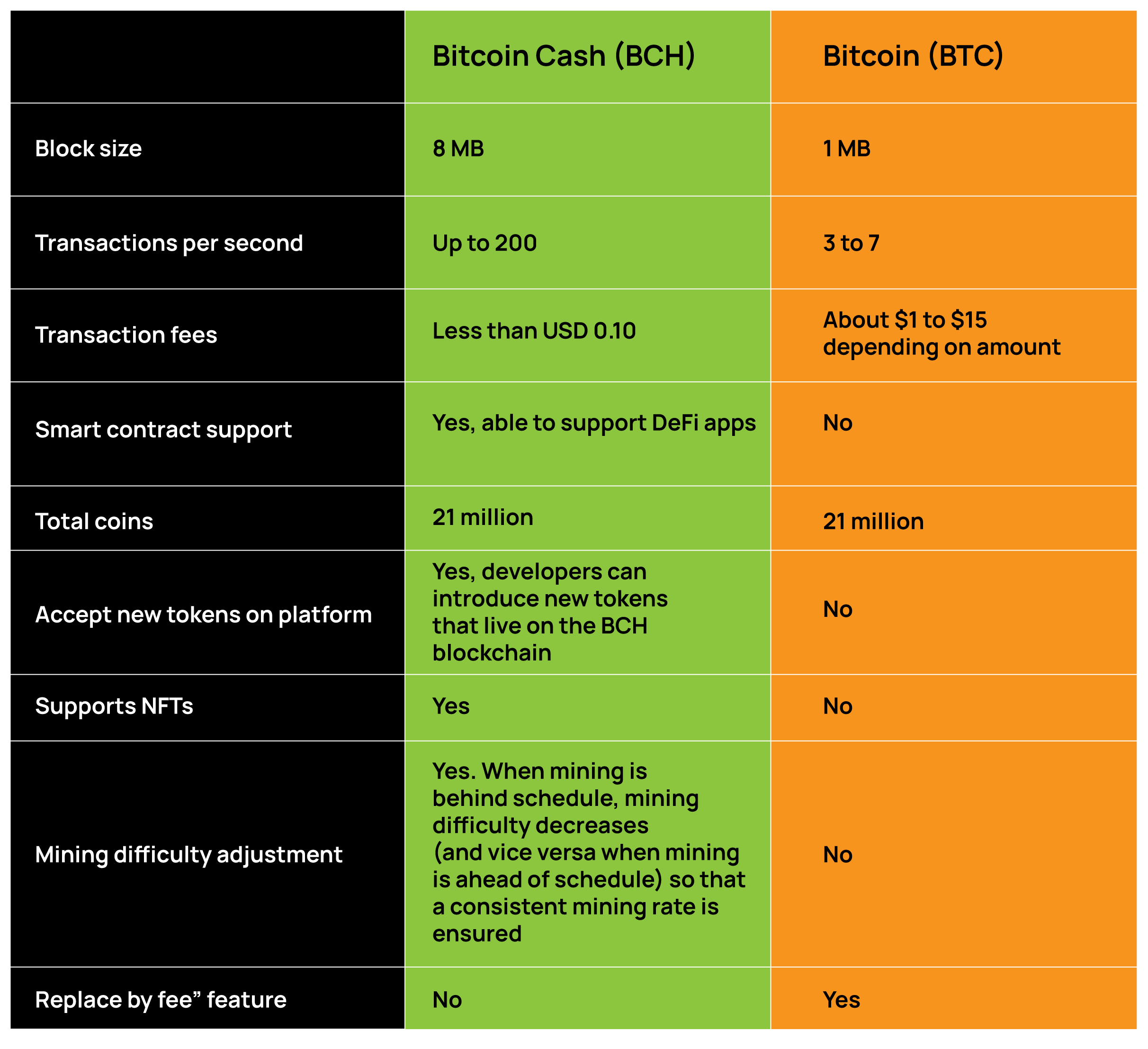Switch on to Plain Talk: What is Bitcoin Cash (BCH)?

Switch on to Plain Talk series is a down-to-earth, easy-to-understand series of articles that’s all about crypto. We’ll break down the seemingly complicated terms and concepts, explain things simply and clearly, so everyone can get a chance to Switch on their Future!
The Basics
Bitcoin Cash (BCH) is different from the original Bitcoin (BTC), they’re two separate coins, operating on two distinct blockchains.
Both blockchains were created with an intention for them to be used as a payment system. BCH, however, was officially released in August 2017 due to disagreements among the developers of BTC, which resulted in a “hard fork” from the BTC blockchain.
A “fork” happens when changes are made to the design of a blockchain. A “soft fork” can be thought of as something like an upgrade from Windows 8 to WIndows 10, where certain rules and features have been changed, but all programs are still compatible on both systems. A “hard fork”, just like the BTC and BCH situation, is more like a group of Windows 8 developers leaving to start their own thing and coming up with Chrome OS, a completely different blockchain.
The main differences between BCH and BTC
The challenge with the BTC blockchain is a simple one: the more people using BTC, the longer transaction times become, resulting in more expensive transaction fees. The blocks were filling up faster and faster. Often, people had to wait for new blocks to be created so that their transactions would go through.
This created many yet-to-be fulfilled transactions in the back log. To prioritize your transaction, you had to pay a high transaction fee for miners to “shift up” your transaction in the queue. For a peer-to-peer transaction system that boasts high speed and low price, this was a big problem.
Two solutions were proposed:
- Change the block format - remove transaction signatures from the transaction IDs to “make more space” on each block.
- Make a bigger block to “create more space”
The team put this to a vote and the first idea received 97% of the votes. The other 3% didn’t quite agree with this approach, so they went off to do their own thing - a “hard fork” - and created Bitcoin Cash (BCH).
The BCH blockchain serves the same functions as BTC, but it promises a much faster transaction time and lower transaction fees.

How do some of its key features affect you?
A bigger block size keeps transaction costs low. What this means is that it is more likely for BCH to be adopted as an everyday form of payment, and used by common people to perform transactions.
The removal of “replace by fee” feature in the BCH blockchain is also a welcomed move by many. What this is, in the BTC blockchain, is something like this: You are trying to send 1 BTC to Bobby, but it is not going through because of the backlog. There’s no way of cancelling this transaction because that’s how blockchain works. So you try the same transaction again, this time with a higher transaction fee to make sure the miners would find it profitable to prioritize your transaction. This time, it goes through! When this happens, your previous unsuccessful transfer would be overridden (so you don’t send extra BTC to Bobby).
Since the BCH blockchain promises a much faster transaction time, there wouldn’t be a backlog. And the “replace by fee” system would naturally drive up transaction prices and turn some of the less financially-able users away.
Like BTC, the BCH is limited to 21 million coins. This means that they can’t just “print money out of thin air”. What this means is that we are a lot less likely to see uncontrolled inflation rates, and the devaluing of your money.
BCH also promises anonymity on its network. It’s rather impossible to see who controls a Bitcoin address. So depending on what you are doing with it, the BCH blockchain provides the privacy that usual credit card or bank transfers cannot give.
Who’s using BCH around the world?
Thousands of merchants worldwide have started accepting BCH as a means of payment. Carribeeats.com, a grocery home delivery service, accepts BCH and delivers to homes in over 15 countries, including the US, UK, Jamaica, and Dominica.
Many establishments accepting BHC include restaurants and shops in Dubai, a Montessori school, and even Nahar Medical Centre in Mumbai. Fast food giants KFC and Burger King in St. Kitts have also started to accept BCH payments.
Just last month, Rolando Brison, the leader of the United People’s Party and member of St. Maarten’s Parliament, announced that he’s become the first elected official to request his entire salary paid in bitcoin cash. This announcement was made as a commitment to turn St. Maarten into the “Crypto Capital of the Caribbean”.
While we do not see BCH to be taking over BTC as the biggest cryptocurrency anytime too soon, we definitely see a lot of potential in its journey. Looking to trade BCH today? Let us help! Switch on your Future and start earning with our app. Download now.
